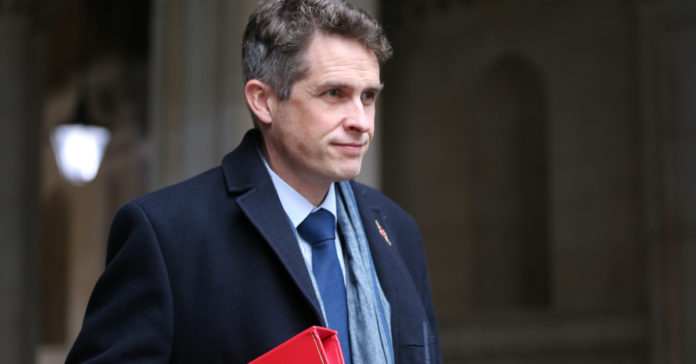Advocacy group CAGE has started a legal challenge against Education Minister Gavin Williamson over what they call “discriminatory guidance to school leaders on Palestine.”
CAGE says the letter issued by Williamson on May 28 amounted to censorship of political dissent in schools and discriminated against students by infringing their right to freedom of expression.
The minister’s advice also leads schools to violate their legal duty for impartiality, CAGE said.
Williamson’s letter followed hundreds of cases of mainly Muslim students being reprimanded in their schools, including exclusions and referrals to the counter-extremism programme Prevent, for expressing solidarity with Palestinians.
In the letter Williamson said that schools must be impartial in how they present the Israel-Palestinian conflict after a “concerning” rise in antisemitic incidents. In some cases, Jewish students and teachers have been bullied and antisemitic views expressed, Williamson said.
Such incidents should be treated with “due seriousness,” he said, reminding headteachers of their “legal duties regarding political impartiality.”
The recent violence had, he said, focused attention in schools on the long-standing Middle East conflict. He said many young people had a “strong personal interest” in the issues, prompting “political activity” by older pupils.
Subscribe to our newsletter and stay updated on the latest news and updates from around the Muslim world!

“Schools should ensure that political expression by senior pupils is conducted sensitively, avoiding disruption for other pupils and staff,” said the education secretary. “It is unacceptable to allow some pupils to create an atmosphere of intimidation or fear for other students and teachers.”
Mr Williamson said school leaders and staff had a responsibility to ensure “they act appropriately, particularly in the political views they express.”
Pupils should be offered a “balanced presentation of opposing views” when political issues are raised, he said. “Schools should not present materials in a politically biased or one-sided way and should always avoid working with organisations that promote anti-Semitic or discriminatory views,” said Mr Williamson.
They should not work with, or use materials from, organisations that publicly reject Israel’s right to exist, he added.
But CAGE says the minister’s intervention, although cloaked in concerns around antisemitism, had the impact of censoring views in schools that challenge the state-sponsored narrative on Israel.
The aim, CAGE says, was to set a fixed template within which pupils’ discussion on Israel-Palestine should be conducted. This was further accentuated by his suggestion that schools interact with specific named openly pro-Israel organisations to deliver a balanced presentation of the issue.
Muhammad Rabbani, Managing Director of CAGE said: “Muslims and others across the globe have expressed their solidarity with the people of Al-Aqsa, those facing forced dispossession of their homes in Sheikh Jarrah and the besieged Gaza strip. In response the government has sought to censor discussions in classrooms and exert control over any political activity in schools. This is, fundamentally, a matter of freedom of expression.
“This case will seek to establish that it is not the function of the executive to choreograph political discussions within schools in the manner of autocratic regimes. This violates the tradition and legal requirement of impartiality that has been the bulwark against state propaganda. We should respect the experience and judgment of school leaders and not politicians seeking to foment “culture wars”.”
Fahad Ansari, Solicitor and Director of Riverway Law leading on this Judicial Review said: “The instruction issued by the Secretary of State has had the effect of not only stifling the legitimate political views of Muslim students in schools across the country, but also justifying their securitisation for simply demonstrating solidarity with the victims of Israeli apartheid.”






















